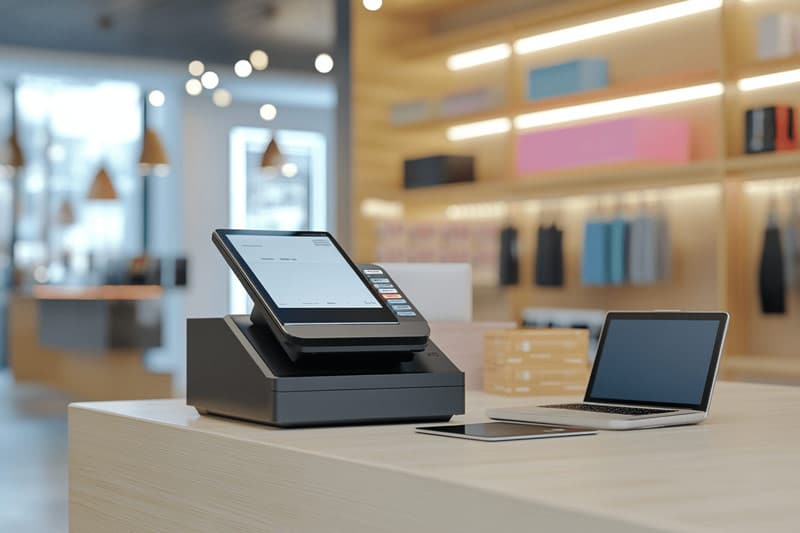Whenever a credit card transaction goes through, merchants are left to pay the costs behind the scenes. While customers happily swipe, tap or click to purchase and have money deducted from their accounts, merchants are forced to deal with transaction fees that ultimately cut into profit. But how much do credit card companies charge merchants and why? This is particularly true of high-risk merchants who might pay more due to chargeback incidences, fees associated with perceived risk and greater regulation. Understanding how much credit card processing fees actually charge merchants can help them negotiate, increase profit margins and go to lenders.
A Guide to Merchant Credit Card Fees
Merchant credit card fees originate from various sources to make accepting a credit card less than worthwhile; some fees are not established by credit card companies. In essence, merchants are charged interchange fees, assessment fees and processor markup. Interchange fees are set by the card network (Visa, Mastercard, etc) and are paid to the bank of the buyer[1]. Assessment fees are determined by the card brand and paid to the card brand. The markup, which you pay to get access to the network, is determined by your specific credit card processing company. Therefore, there are many layers of costs determined by your business type, credit card type, transaction type and average monthly transaction volume.
What Do Credit Card Companies Charge Merchants?
Typically 1.5%-3.5% per transaction, but can be much higher for high-risk verticals like supplements, guns, or digital. A typical walk-in retail merchant may be paying 1.7% to 2.5% with credit card companies, while a nutraceutical ecommerce merchant could be paying 4% or more[2]. Aside from per-transaction percentage fees, transaction fees, gateway fees, PCI compliance, and chargeback fees can be charged. Interchange and assessment fees are pretty cut and dry, but it’s the processor markup where the most negotiation occurs.
Why Businesses Get Different Rates
Credit card companies and processors give a Merchant Category Code (MCC) to every business to identify the business type. MCC assesses risk categories, regulatory assessment, and chargeback history. For example, an e-commerce coaching platform with subscription billing could be assessed as more risky than a brick-and-mortar hardware store. Thus, high-risk merchant accounts exist for businesses that are assessed as high fraud risk/chargeback risk or those that need rigorous compliance[3]. Others might have high risks merely because of their category, meaning exploring and negotiating is required because they might get charged all the time. Increases like these are predetermined. Market history means nothing to credit card companies.
How Pricing Models Impact What You Pay
In addition to the type of business, the way your processor prices transactions will impact what you pay. With Tiered Pricing, transactions are “qualified”, “mid-qualified” and “non-qualified”, meaning it’s tiered person payments based on what level it falls into; this provides less confusion in billing but ultimately hides the cost. Interchange-Plus pricing provides transparency in the transaction breakdown as it outlines how much goes to Interchange and how much is markup for the processor. For good reason, high-risk merchants want the second style because it provides thorough assessment of how much goes to credit card companies versus how much goes to processors—thus providing them with negotiation leverage.
Card Type Matters: Debit vs. Credit vs. Rewards Cards
Different types of cards carry different interchange rates. For example, debit cards (especially PIN debit) come with lower fees than credit cards. Likewise, premium or rewards cards cost merchants more to accept because the issuing bank has to subsidize cardholder perks. For example, a Visa debit card might provide an interchange rate of 0.8%, while a rewards credit card could go beyond 2.5%[4]. While as a merchant you cannot control what type of card a customer presents, understanding which types comprise your mix can help you measure your effective rate and seek areas to eliminate high-cost card acceptance.
Online vs. In-Person TransactionsCar
Card-not-present transactions (like e-commerce) are more expensive than card-present transactions. Why? Because they pose more risk. Credit card processors know that without a physical card or signature, there’s a greater chance of fraud, and thus charge higher interchange rates. A physical restaurant may pay 1.9% for a credit card it swipes, while an e-commerce merchant that bills customers monthly might see rates over 3.2%. The distinction is important for high-risk e-commerce merchants who need to find safe credit card processing and fraud prevention to keep their rates down.
Chargebacks and Their Impact on Fees
Chargebacks are one of the biggest expensive threats to merchant profitability. Merchants not only lose profits due to chargebacks, potential fees, and penalties, but ongoing chargebacks can cause credit card processors to change your categorization—and raise your rates—or, even worse, cancel your account. Chargebacks for high-risk merchants could cost $25 to $100 per chargeback, depending on the processor[5]. Some processors have chargeback mitigation tools or fraud filters to assist; finding those processors can save merchants a lot of money in addition to their reputation.
How to Reduce Processing Fees
Merchants who want to save on credit card fees can start with a few easy steps on their own. First, assess your statement and break it down so you know how much of your rate is interchange, assessments, and retail markup. Second, ask your credit card processor if you qualify for Level 2 or Level 3 data submission, which reduces fees for B2B transactions. Third, utilize AVS and CVV checks to identify fraud. Fourth, and I would argue the most important, is to work with a processor that understands your industry. For instance, if you are a high-risk merchant, never settle for a vanilla processor, i.e, a processor without the infrastructure to handle varying risk levels.
Why You Want a High-Risk Processor
There are processors specific to high-risk merchant accounts that understand compliance and operational quirks for CBD, adult, coaching, digital subscriptions and more. Their underwriting flexibility, fraud protections, ethical developments and incremental rate increases ensure that while the starting base rate may be higher, the potential to keep your account in good standing while scaling your business goes well beyond a nominal increase. For example, Payment Nerds also offers PCI security assistance and customer service trained troubleshooting abilities in niche as well as customized payment flow options that help with new customer conversion rather than increased penalty rates over time.
FAQ
Q: How much do credit card processing companies charge merchants?
A: On average, credit card processing companies charge merchants anywhere from 1.5% to 3.5% per transaction; high-risk companies tend to pay more. It all depends on the caliber of card used, in-person or card-not-present or e-commerce transaction, merchant category code, and pricing structure of the merchant processor.
Q: Why is my processing fee higher than the advertised rates I see?
A: The advertised rates you see don’t account for charges on premium cards, the costs of chargebacks, or a processor’s markup. Based on your industry code or amount of online sales, your effective rate could be higher than expected, as well.
Q: Can I negotiate credit card processing fees?
A: Yes, you can negotiate credit card processing fees, specifically the portion that the processor marks up for themselves. The best way to make sure you’re getting a decent deal is to go with an interchange-plus pricing structure and compare multiple processors. Businesses with high volume or low chargeback rates typically have the most bargaining power.
Q: Do credit card companies set all the fees?
A: Not all the fees are in the hands of credit card companies. Card brands only set the interchange and assessment fees. Each processor sets its own markup. Merchants cannot negotiate interchange and assessment fees, but can play the field to find processors with the best markup.
Q: What can I do to offset processing fees?
A: Surcharge programs, or at least explainers, PCI compliance, processors who specialize in your industry to help mitigate fraud risk, etc. Look for dual pricing or ACH/e-check options.
Conclusion
Understanding what credit card companies charge to merchants, why, and how those charges occur can help you maintain proper profit margins for your business, even if it’s considered high risk. From interchange to markup, each segment of your payment processing needs is critical. The best hustlers in the business won’t just quote a rate; they’ll provide you access, resources, and recommendations to avoid such fees in the future. Expansion can only come from within. Know your accounting and team up with a payment processing agent like Payment Nerds, who knows their stuff, so your business can get the financial edge it needs to succeed.
Sources
- Visa. “Understanding Interchange Rates.” Accessed July 2025.
- Mastercard. “Merchant Fees and Rules.” Accessed July 2025.
- NerdWallet. “How Credit Card Processing Fees Work.” Accessed July 2025.
- Forbes. “How Small Businesses Can Reduce Credit Card Fees.” Accessed July 2025.
- Payment Card Industry Security Standards Council. “Payment Acceptance Best Practices.” Accessed July 2025.











